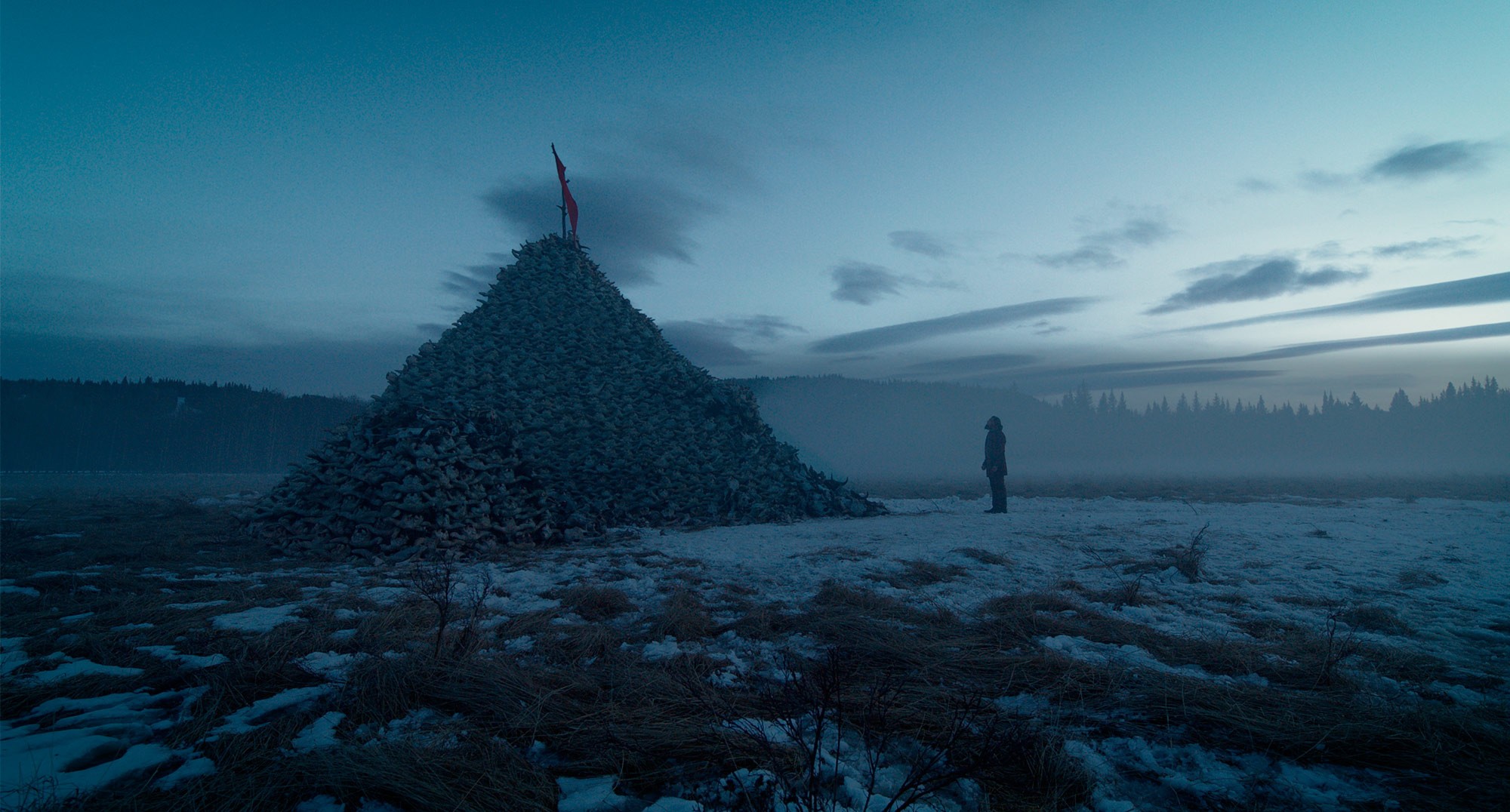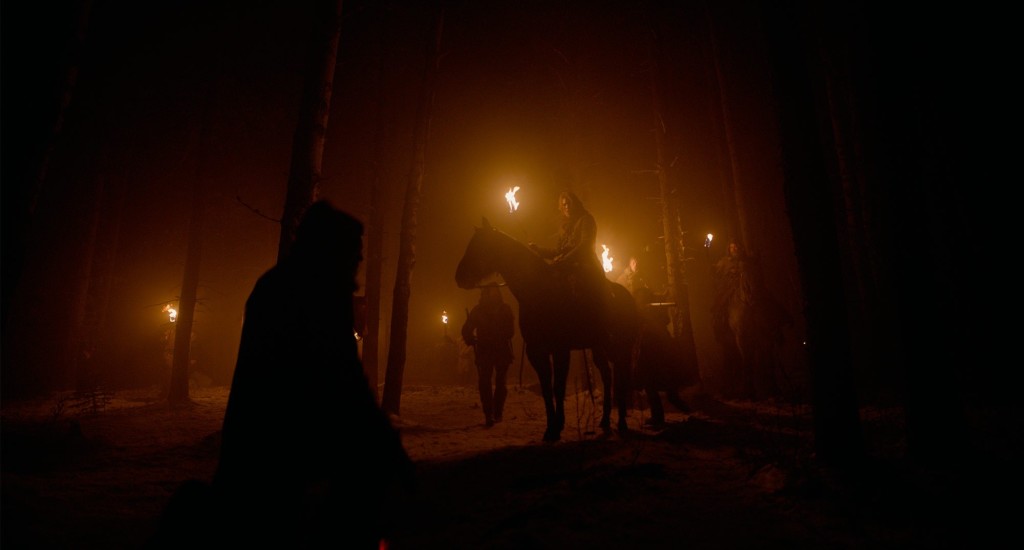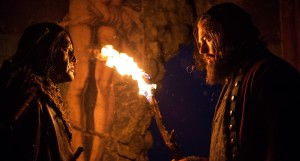Translating deep thinking into common sense
Risen from the Dead but Still Groggy

By Walter Donway
January 22, 2016
SUBSCRIBE TO SAVVY STREET (It's Free)
The unforgettable scene in The Revenant, at least for this reviewer, is the attack on mountain man Hugh Glass (Leonardo DiCaprio) by a grizzly bear. That seems fitting because the mauling is the one thing we know for sure happened to Glass—a figure otherwise wrapped in historical anonymity and then tied up in legend. On a fur-trapping expedition in 1823 up the Missouri River into the wilderness of the Dakotas, the real Glass did surprise a grizzly sow with her cubs and got mauled to death. The scene is astounding, terrifying in the sheer pitiless ferocity of wild nature. It is so good that they might have named the bear Oscar.
I wonder if, in the end, this movie, with isolated delights, is betrayed by Hollywood’s political correctness. A director who sets out to narrate the story of Hugh Glass, even its rudiments, has a political problem. The expedition of the Rocky Mountain Fur Company suffered an unprovoked murderous raid by Arikara Indians.
Well, almost mauled Glass to death, so that the two comrades left behind with him to await his death and give him a Christian burial—the rest are fleeing a murderous attack by Arikara Indians—became impatient for the inevitable and abandoned him in a shallow grave not 100 percent dead. And thus “the revenant”: a person who returns as a spirit after death to terrorize the living.
Glass, in life and the movie, refused to die, crawled from the grave, and kept crawling—by some reports as much as 300 miles—back to Fort Kiowa. The incident passed into frontier legend just two years later, when a story appeared in a Philadelphia literary publication and, as they say today, went viral.
In the movie, DiCaprio starts with the grizzly fracas, then takes on groaning, frothing defiance of death (we get no lines from his lacerated throat), then the agonizing climb out of his grave, and then six weeks of harrowing progress across wintery wilderness to safety. He must give the role nonstop, supercharged energy in every facial muscle and inarticulate cry. DiCaprio succeeds and no one, I think, can take that away from him.
 The Hollywood reports of his involvement in the rough, icy shoots in northern Canada and southern Argentina in winter just heighten the glamor. The Telegraph reported:
The Hollywood reports of his involvement in the rough, icy shoots in northern Canada and southern Argentina in winter just heighten the glamor. The Telegraph reported:
“In a revealing interview with Variety, it appears that it wasn’t just DiCaprio’s principles at stake, but also his career. The piece explains how DiCaprio’s lawyer and agents were called regarding the offal, and both parties had to give their clearance before producers served up the organ, which could have been riddled with disease.”
Glass has solid motivation. In real life, it was survival; in the movie, it is revenge because the leader of the men who were left with him, John Fitzgerald (Tom Hardy), decides it is taking Glass too long to die. Glass’s half-breed son, Hawk (Forrest Goodluck), takes exception to this, and Fitzgerald drags him away and murders him as the immobilized, silenced, but aware Glass strains to call out but only can growl and froth.
So what is wrong? Why were DiCaprio and the determined director, Alejandro González Iñárritu, not able to save this two-and-a-half-hour movie from dragging, from seeming so long? Even with wilderness scenery that unfolds in majestic panoramas, poetic close-ups, and at times with shattering power as the already half-dead Glass sweeps down white-water rapids to escape the Indians? And even with plenty of brute-survival footage of tearing at live fish, scraping rotten marrow from an old carcass, and gutting his dead horse to crawl inside naked to get warm? And even with side stories, mostly featuring Indians who display the gentle spiritual grace of the tribal Native American—when they aren’t slaughtering, kidnapped, raping, and torturing their enemies?
The movie’s shortcoming, I would suggest, is at once fundamental and subtle. But the test of that assertion is as basic as movie-going itself. Are you riveted to the screen? Watching with interest? Beginning to check your watch?
Everyone is his own reviewer, here, but I was checking my watch. My wife, a movie addict, told me she would have suggested we leave, but “You seemed interested.”
Actually, I was sneaking glances at my watch. And yet, this movie, before I saw it, already was a favorite of mine in the best-picture stakes. Tales of mountain men, wilderness adventure, and Indian fighters are lifelong loves of mine. The Revenant tells the tale of legendary mountain men such as Jim Bridger, William Sublette, and Jedediah Smith, not to mention Glass, who joined the fateful expedition that was attacked by Arikara Indians—igniting the brief, brutal “Arikara War” with the U.S. Army.
My best guess is that the close-up chronicle of six weeks of primitive survival—the crawling, groaning, fevered progress of Glass—his meals of bloody flesh, his festering wounds, his agonizing trudging—is just not engaging. At least, not engaging enough for as long as we have to watch it. The director doubtless recognized this challenge and pursued strategies to counteract it. But these diversions—tacked onto the Hugh Glass story—seem drawn from a repertoire of old reliable Wild West action.
 Glass sneaks into a French camp to steal a horse—and chances to rescue a captive Indian woman being raped. There is a chase on horseback with the Indians in close pursuit until Glass’s horse plunges over a cliff. There are mystical visions of his dead wife and his dead son—Glass is portrayed as having had a Pawnee wife (Grace Dove)—in awake-dreams of spirits. There is the kindly Pawnee brave who cares for Glass, building him a wikiup complete with steam bath to save him from a blizzard. Well, we have seen these before, of course, and this film, since Glass is in primitive mode, does not elaborate much.
Glass sneaks into a French camp to steal a horse—and chances to rescue a captive Indian woman being raped. There is a chase on horseback with the Indians in close pursuit until Glass’s horse plunges over a cliff. There are mystical visions of his dead wife and his dead son—Glass is portrayed as having had a Pawnee wife (Grace Dove)—in awake-dreams of spirits. There is the kindly Pawnee brave who cares for Glass, building him a wikiup complete with steam bath to save him from a blizzard. Well, we have seen these before, of course, and this film, since Glass is in primitive mode, does not elaborate much.
I wonder if, in the end, this movie, with isolated delights, is betrayed by Hollywood’s political correctness. A director who sets out to narrate the story of Hugh Glass, even its rudiments, has a political problem. The expedition of the Rocky Mountain Fur Company, financed and led by Major Andrew Henry (Domhnall Gleeson) and his partner, suffered an unprovoked murderous raid by Arikara Indians. Without that, there is no story. But…how then to apologize for this portrayal of savages who lived, and always had lived, by war? How during the course of the movie to expunge this affront to today’s Native Americans and leave the viewer with the image of graceful, dignified, spiritual beings, at one with nature, aggressive only in defense of their hunting grounds?
On the foundation of Hugh Glass’s mauling, and his crawl from his grave some hundreds of miles to the fort, the writers and director have crafted a drama to glamorize the American Indian. To begin with, Glass is the father of a loyally loving Pawnee boy, whose beautiful mother was slain by soldiers. The New York Times review offers the helpful insight that the murder of Glass’s “half-breed” son, Hawk, is symbolic of the genocide of the Indian. Literally crawling across snowy wastes, Glass is taken into the care of a Pawnee brave, who ends by saving him from a fierce northern blizzard—and himself is hung with a racist sign around his neck by French soldiers. Seeking a horse, Glass creeps into the camp of the soldiers who hung his Indian companion and now are amusing themselves by raping the Indian princess whom Glass saves. As Glass’s prolonged deprivation induces visions, he repeatedly sees his lovely departed squaw summoning him, encouraging him to spiritual resilience. Interlaced with this action, we have appropriately Indian-laconic declarations that they war only for their hunting grounds.
These themes we have heard and, unfortunately, The Revenant uses them straight from the files. None of these sub-stories has much basis in the history of Hugh Glass and the Rocky Mountain Fur Company expedition, although, after the grizzly attack tale became widespread, rumors galore arose around Glass. For me, at least, while the raw chronicle of survival crawled ahead, the elaborate valorizing of the Native American seemed irrelevant—and, in the end, false.
The New York Times review, by the way, is largely positive about the movie—and there are good reasons to be—but sees the director’s attempt to use mystic visions “to elevate an ugly story into a spiritual one” as unfortunate. I mean, when we get serious, we get Marxist, right? Thus, reviewer Manohla Dargis suggests that because a fur trapper complains that he didn’t get paid—the Arikaras stole the pelts and his contract stipulated delivery of those pelts—a theme of the movie should have been that the “brutal” system of capitalism that “turns people and animals into commodities” is what built America.
There is no doubt at all that The Revenant arises and walks and is often an impressive—at times, awesome—movie. In the end, though, like so many among us, it didn’t quite figure out what to do with its life.
The “revenant,” you see, just as well could have been Marxism, risen from its grave to terrorize the living—a role it played to perfection in almost a century of totalitarian horror. Where does Hugh Glass fit? Marxism makes that obvious: he is “another hunter for hire doing his bit to advance the economy one pelt at a time.”
This painful levity aside, no reader, I trust, will conclude from what I have said that The Revenant is just another undistinguished movie. As I stipulated at the beginning of this review, I am measuring the movie against standards implied by the eight films—including this one—named for “best picture” at the Oscar nominations for 2016.
There is no doubt at all that The Revenant arises and walks and is often an impressive—at times, awesome—movie. In the end, though, like so many among us, it didn’t quite figure out what to do with its life.








